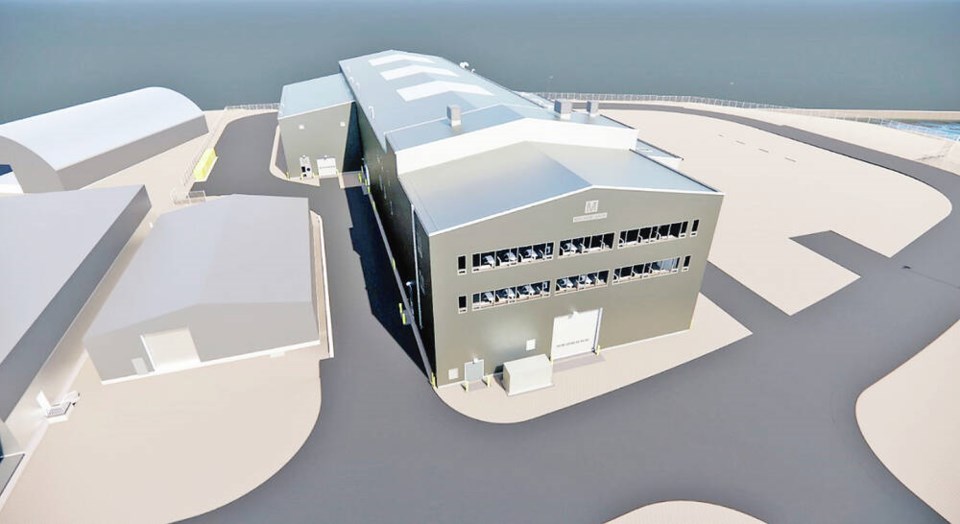B.C. Ferries is moving to rebuild and modernize its decades-old fleet maintenance facility in Richmond, where 40 per cent of the work maintaining, repairing and upgrading its vessels is carried out.
The goal is to increase the unit’s service capacity to 45 to 50 per cent of the 39-vessel fleet..
No costs have been released, other than that the plan exceeds $25 million. In October, B.C. Ferry commissioners approved an application from B.C. Ferries to go ahead with the project. Capital projects above $25 million require approval by the commissioners.
The company issued a request for proposals on Wednesday for construction-site supervision for work beginning next month and running until September 2026. The opportunity closes Jan. 26.
In its 81-page application for approval to commissioners, B.C. Ferries said existing infrastructure at the facility on 40 acres at Deas Basin has reached its “maximum service capability.”
The unit developed in an ad hoc fashion in the decades it has been used and now includes about 15 separate buildings providing 28 functions or services. It is an “outdated, inefficient aging facility that has fallen well behind the pace of change,” B.C. Ferries said in the application.
Many buildings are at or near the end of their lives and have structural seismic and hazardous-material deficiencies, it said. Work spaces are small and fragmented, shop spaces are undersized and not capable of handling new large thrusters. Some work must be carried out outdoors in poor weather because of lack of space, putting both staff and assets at risk, it said.
For example, “Large-high-value thrusters are stored in uncovered areas around the facilities where they are exposed to the elements.’
The unit does not have adequate facilities to service and re-certify all of the fleet’s 254 life rafts and it stores valuable assets in unsuitable locations and conditions, it said.
Changes are expected to reduce operating costs, B.C. Ferries said.
Under the redevelopment plan, some old buildings will be replaced with one new 81,902-square-foot multipurpose machine shop building. The existing machine shop is 28,500 square feet.
Its new foundation will be raised to address expected sea level rise and protect against flooding.
Several shipping containers used for storage will be removed, and five other buildings will be improved and modernized to extend their lives and allow them to be used for other purposes, the application said.
Underground utility infrastructure will be replaced and upgraded.
Environmental features such as energy-efficient lighting, heating and cooling systems, and improved storm-water collection are part of the plans.
The redevelopment comes as B.C. Ferries is buying new vessels to standardize its fleet. There are fewer types of ferries as the company rolls out new classes, such as the Salish and Island class.




